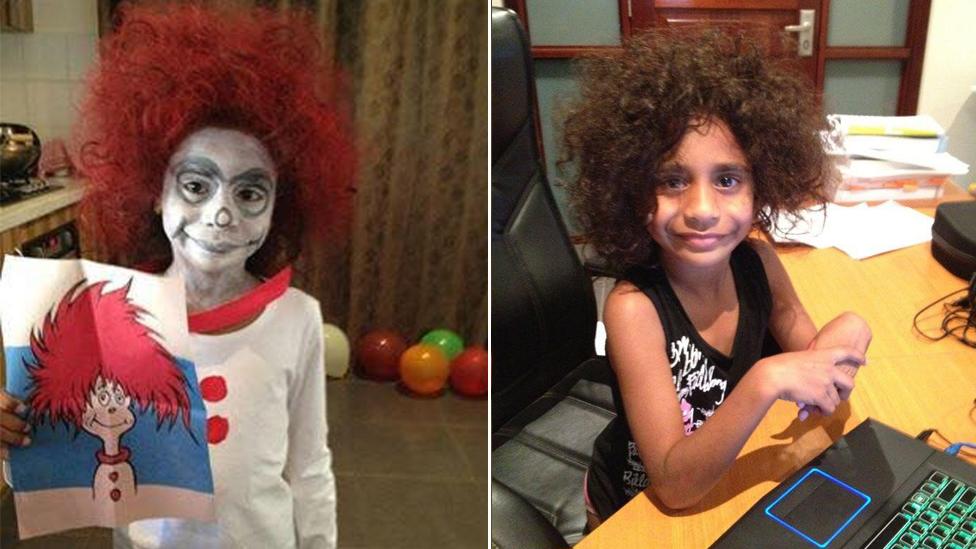Australia domestic violence: Aboriginal dancers highlight problem
- Published
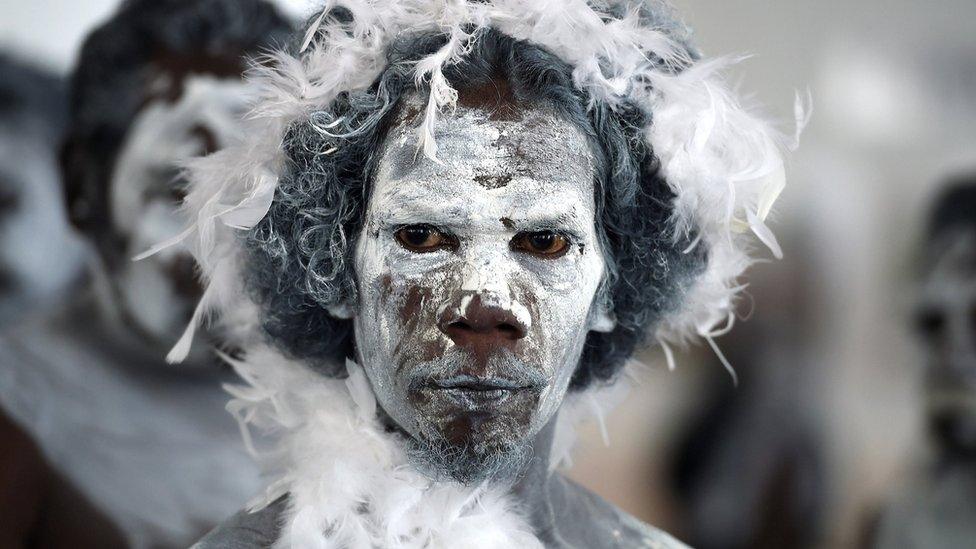
A group of Rirratjingu traditional dancers travelled to the Australian capital
Aboriginal dancers travelled across Australia to highlight the "horrifying" levels of domestic violence in Outback indigenous communities.
Dancers from the Rirratjingu clan, carrying clap sticks and spears, their faces painted white, performed outside parliament in Canberra.
The group urged action against a problem that disproportionately affects indigenous women.
Aborigine women are 34 times more likely to be victims than other women.
"We are seeing horrifying rates of family violence in indigenous communities and it is incumbent on all people - community leaders, political leaders and businesses - to act to drive it down," Rirratjingu elder Bakamumu Marika said.
The group, which travelled from Yirrkala in the Northern Territory, were met by Prime Minister Malcolm Turnbull.
He linked arms with lawmakers of various parties, including opposition leader Bill Shorten, as a sign of solidarity.
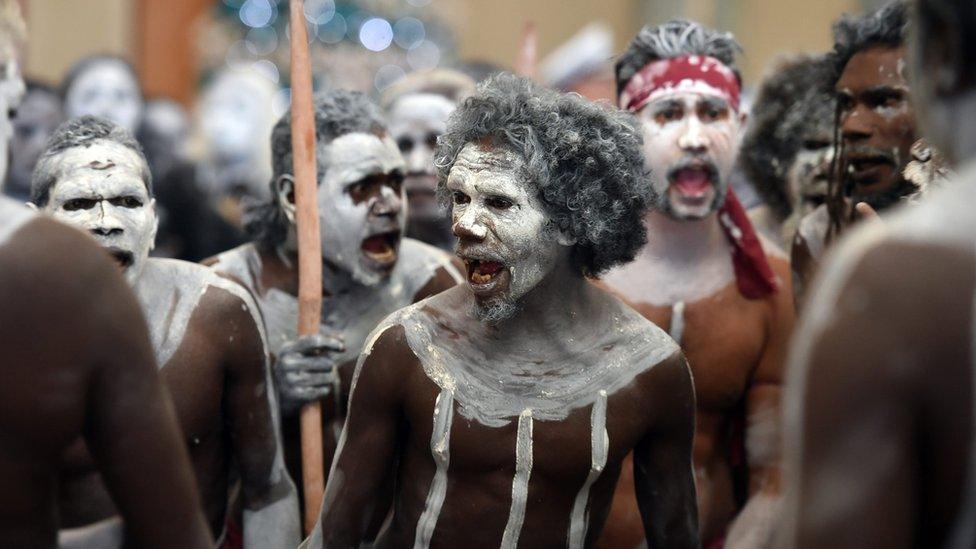
The group performed outside parliament to highlight the problem of domestic violence in indigenous communities
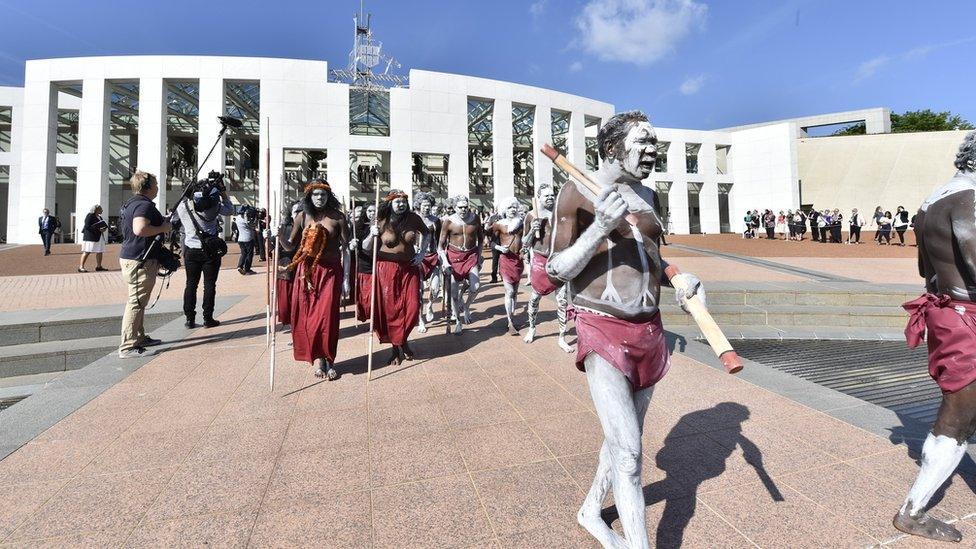
Indigenous women are 34 times more likely to be victims of domestic violence than other Australian women
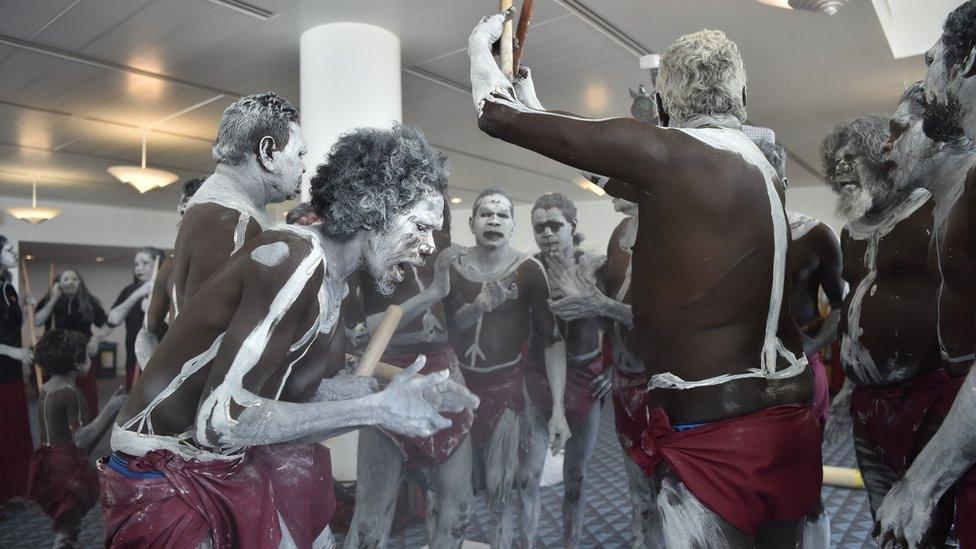
They are also more likely to be hospitalised
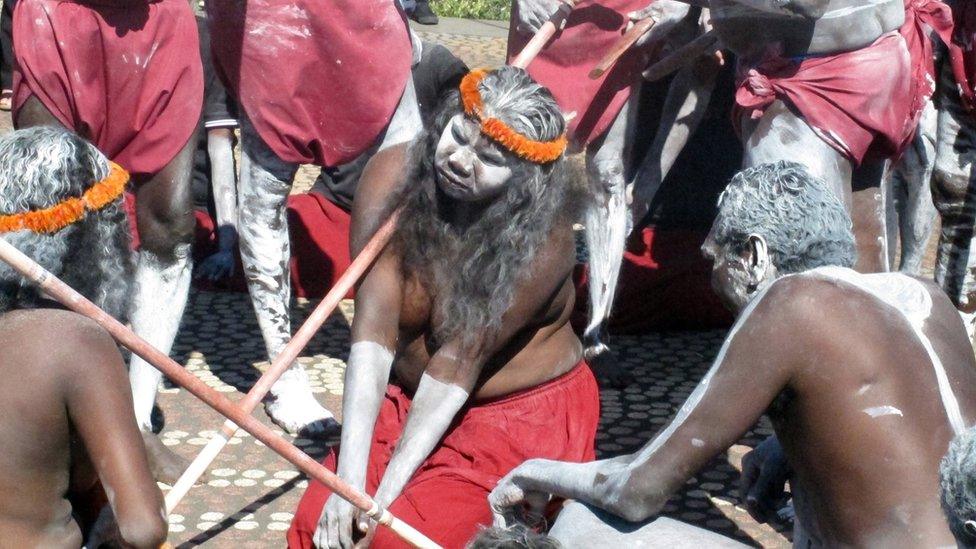
But this community has already been working to reduce domestic violence
Speaking afterwards, Mr Turnbull highlighted stark figures which show the scale of the problem, including that indigenous women were admitted to hospital for domestic assaults 30 times more often than other Australian women.
However, the community around Yirrkala had reduced family violence by 29% in a single year through programmes aimed at fostering respect for women, Mr Turnbull added.
"Your dance is more powerful than the words we can speak here," Mr Turnbull said. "You're using the strength of your culture to seek to stop this violence.
"You're using the power of you dance, your tradition, your culture, to communicate our need, our duty to respect women, and we thank you."
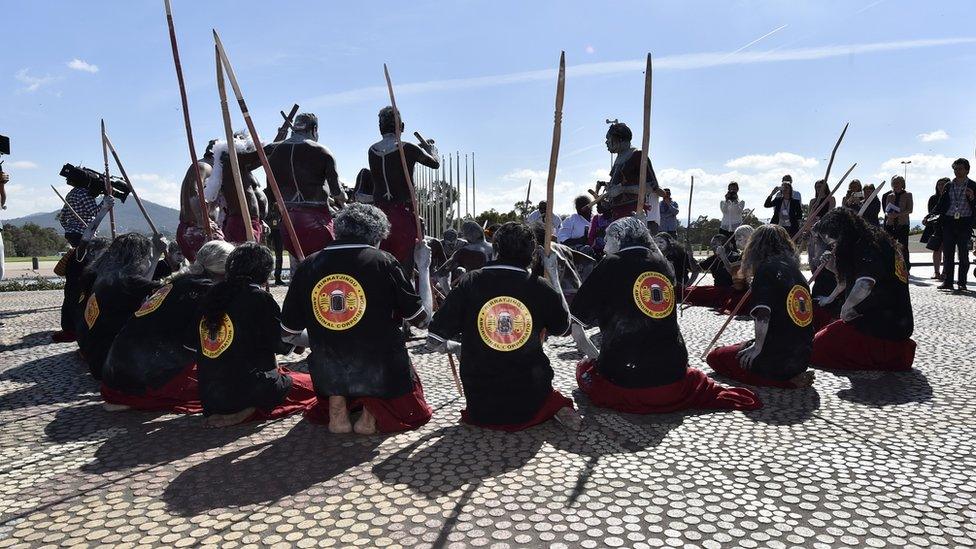
Prime Minister Malcolm Turnbull later moved a motion acknowledging that violence against women was a national issue
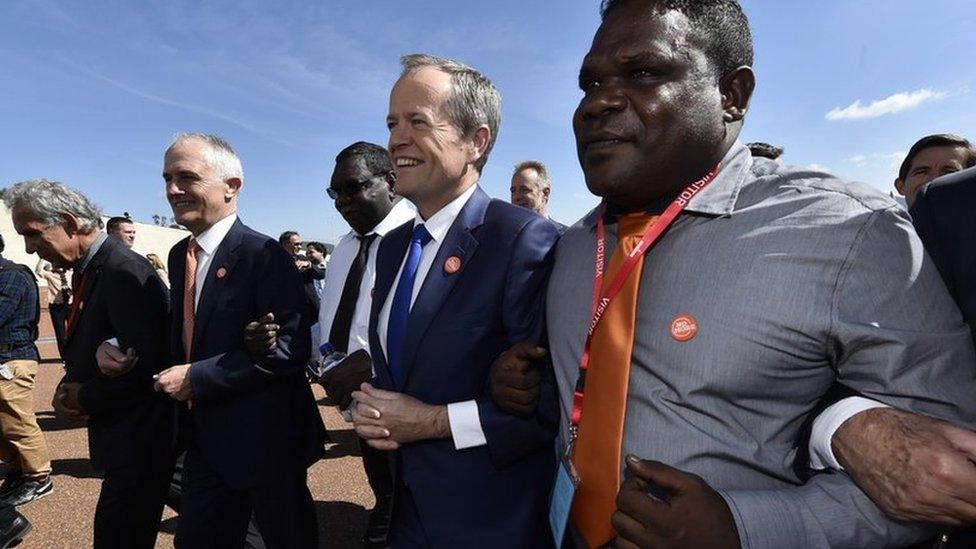
Members of the community joined Mr Turnbull (second left) in parliament
He concluded: "We can and we must do better."
Mr Turnbull later moved a motion in Parliament acknowledging that violence against women was a national issue that required a response from the entire community, as the Rirratjingu people watched from the public gallery.
- Published31 August 2016
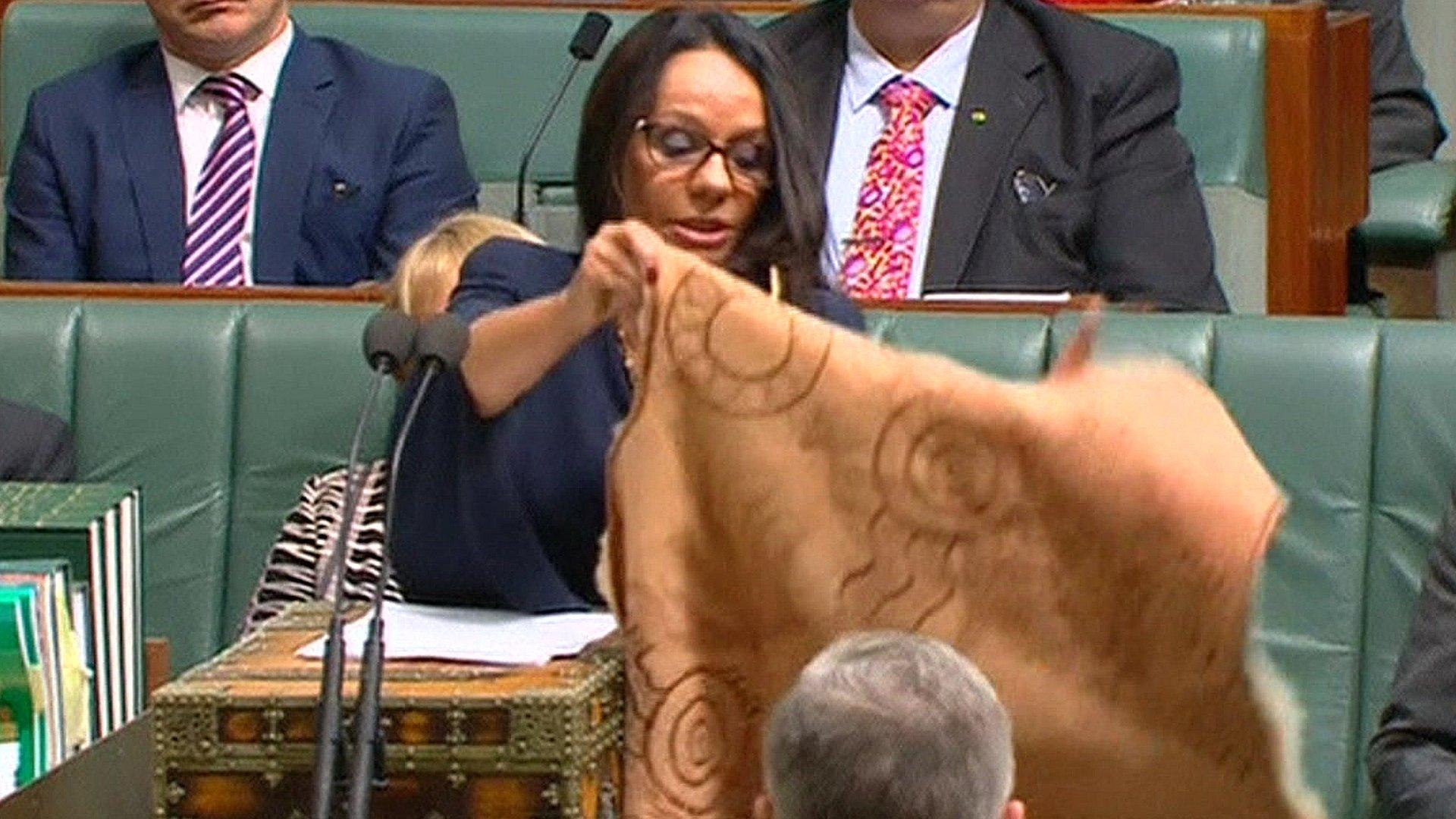
- Published9 June 2016
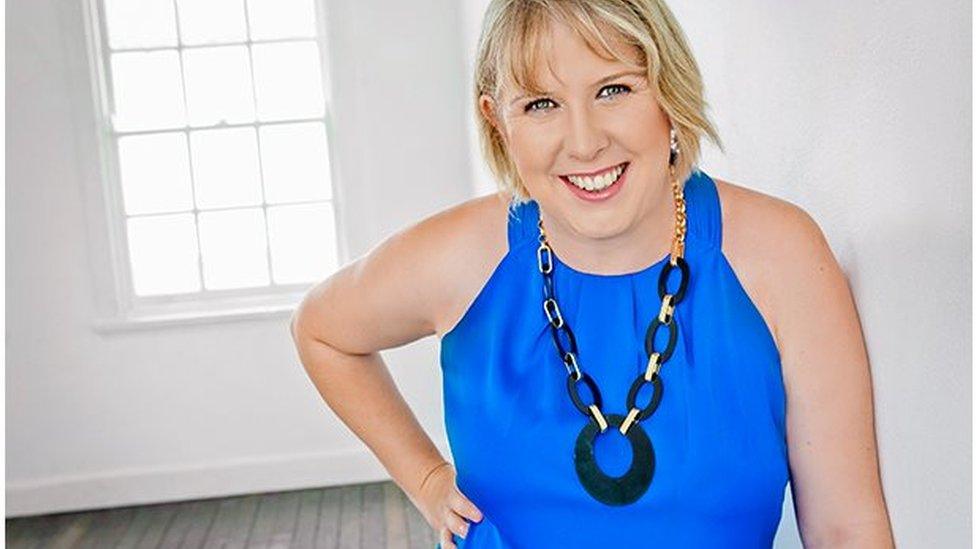
- Published30 August 2016
